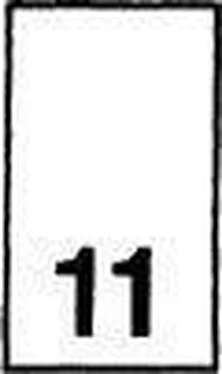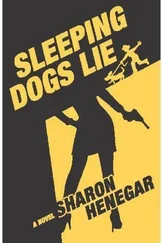Elizabeth dialed her own number and waited four rings before the answering machine kicked in. “Maria,” she said, “it’s me. Please pick up the phone.” After a few seconds, she heard the baby-sitter’s voice.
“Waring residence,” said Maria. If she knew who it was, why did she say that? Elizabeth reluctantly accepted that she would have to explain it again, along with the part about the phone numbers. The line in the office at home was Waring; the one in the bedroom was Hart. Maria had easily understood that Jim’s name was Hart, and that Elizabeth’s name was Hart. But then Elizabeth had gotten overconfident and told her she used the name Waring at work. At first Maria had been suspicious. Did that mean that what Elizabeth did for a living was illegal? No, she was a government lawyer, and Waring had been her name before she was married. What did being married have to do with being a lawyer? Nothing. Then, was being a government lawyer dangerous, like in Colombia? No, not usually.
Then Elizabeth had been subjected to a lengthy cross-examination on precise gradations of risk. When Maria had satisfied herself that nobody was doing anything illegal that would put her in jeopardy of deportation, or anything dangerous that would harm the children, she had clearly decided that there was something disreputable going on. Her questions indicated that she suspected that Elizabeth had never been married, and that Hart was a fiction adopted to protect the illegitimate children. Since she loved the children, she could live with this. So where did “Waring residence” come from?
“Maria,” Elizabeth said, “how are the kids?”
“No good.”
“Not good? What’s wrong?” Her heart stopped beating and began to quiver.
“Jimmy wore dirty old sneakers to school.”
“That’s okay. I told him it was all right.” This was a lie, but it was the only way to close the issue. Maria had been educated by nuns who really appeared to have believed that cleanliness was next to godliness, and she was convinced that going to school every day was a privilege to be celebrated in shined shoes, immaculate shirts and pressed trousers. “What about Amanda?”
“She spit up.”
“How much—a little spit-up, like a burp, or a big one? Should I come home?”
“Not too big. Little bit, but then she happy and go to sleep.”
“Did you take her temperature?”
“Yes, normal.”
“Well, thanks, Maria. I’ll call again later. You have the number here, right?”
“I have it.”
“Do you need anything?”
“No. Good-bye.”
“Good-bye.”
Elizabeth stared at the telephone. This was a special taste of hell that somebody had thought up for her. She had wanted children, and from the moment Jimmy had been conceived, she had understood that the term “blessed with children” wasn’t an ironic way of saying it, because it really was how you felt. But there they were, and here she was. She was living the life she had said she would never live. Her children were growing up without seeing her for ten or twelve hours a day while she was out chasing a career she didn’t want. Another woman played with them, dressed them, took Amanda out in the stroller and said the word tree or squirrel to her for the first time.
She heard the phone in Richardson’s office ring and watched him snatch it off the hook. At first he looked elated, which meant that it was the FBI calling him from Los Angeles and not a file clerk letting him know that she was going to be late. But now he looked concerned, then frustrated. He leaned his head on his fist and let his shoulders slump from the tense shrug that had held them for the past five minutes, and she knew it was over. She drifted to the doorway and looked at him, lifting an eyebrow. “They lost him,” he said.
“Why?” Her throat was dry, and it was just a sound to make anyway. It didn’t matter.
“They don’t know. He paid cash for a ticket to Hong Kong, then never showed up. Our birdwatcher at the airport says it’s because the FBI sent four identical G-man types who proceeded to walk up to him and ask him to point out the suspect. Who, incidentally, was still calling himself Charles F. Ackerman.”
“Today.”
He nodded. “Today.”
“Did the birdwatcher say anything else?”
“He’s a little annoyed. He said if this guy’s so important, how come nobody told the FBI to send the first team.”
“Good question.”
“I thought it was implied in what I told them, but he said they acted like we were after an eight-o-niner.”
“What’s that?”
“I was afraid I was the only one who didn’t know. It’s what he calls a person carrying money out of the country for illegal purposes. They’re not usually dangerous.”
“What’s eight-o-nine, an IRS regulation?”
“No. It’s a telephone area code. Cayman Islands, Dutch Antilles …”
“I’ll remember that. It’s probably where all the HUD money went.” She turned and walked over to her old desk to get her purse. As she picked it up, she tried to remember whether she had left anything in the conference room. No. She could feel her pen, wallet, keys and glasses through the soft glove leather. It was going to be all right. She could be in her office in the other building in time for work, and none of this would have to take up space in her mind. Then she realized that Richardson had followed her out. In a way it was an appropriate gesture. She had given up several hours of her time to a division she didn’t work for, and somehow the fiction had been allowed to grow between them that they had been friends in the old days, so for the moment it was good to maintain the pretense long enough for her to get out of here gracefully. The truth was that when she had left the section ten years ago, she had officially gone on vacation and then never come back. She’d had no impulse to say good-bye to anyone at the time, and when it had occurred to her that she should have, it was too late. Nobody in the office had called her, either.
“Elizabeth,” Richardson said. He was going to thank her for the favor. Fine, she thought. She’d say it was nothing, and then she would be out of here.
But he said, “I’ve got a favor to ask.”

Carlo Balacontano had been playing gin rummy since he was twelve, and he was very good at it. In October he would be sixty-six, and it was one of the things he could still do as well as he ever had, because even though his arms were no longer heavily muscled and his knees were sometimes a little stiff, his mind was still able to determine and remember the locations of all fifty-two cards, if a game came down to that. Usually he needed to hold only about thirty in his head at once, and he could do that, talk and think about business at the same time. But today he wasn’t doing any of that, because he was sitting across the weight-lifting table from José-Luc Ospina.
Every day Carl Bala came to sit under the overhanging roof of the weight-training area. When he approached in his slow, leisurely stroll, four young men would step up and begin to haul the barbells off the leather-bound table so that he could sit down, take his deck of cards out of the breast pocket of his blue-denim shirt and rip open the package. This ritual had gone on since his second month at Lompoc Federal Correctional Facility eight years ago.
He would have begun to play gin right away, but for the first four weeks he had been out of his mind. His lawyers had assured him right up until the last day that his case would be retried in the Court of Appeals. But the judge had read the trial transcript in one afternoon, then ruled that there were no grounds for appeal. This had somehow stuck with him during the next few weeks, tormenting him, awake or asleep. Carl Bala was not a no-neck whose reading speed was determined by how fast he could move his lips, but he simply did not believe that anyone could read twelve hundred pages of testimony in one afternoon. He suspected that the pompous little bastard was one of those people who had gone to a class where they learned to read by moving their index fingers down the center of the page. The fact that after all these years he had finally been convicted on a bogus charge had not struck him as outrageous. With few exceptions, the people he knew who had gone to jail had been guilty, but not necessarily guilty of the particular crimes discussed at their trials. The system knew its enemies. If he’d had the choice of either accepting the simple murder of Arthur Fieldston or confessing to all the things he had actually done, he would have chosen Fieldston.
Читать дальше













